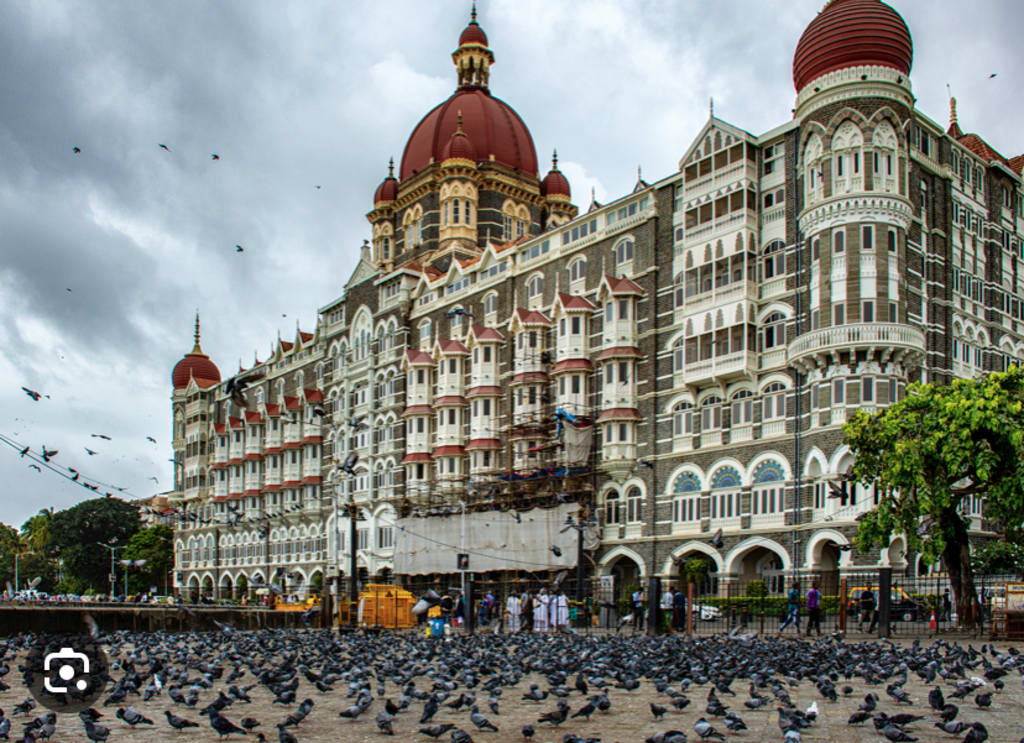Content warning
This story may contain sensitive material or discuss topics that some readers may find distressing. Reader discretion is advised. The views and opinions expressed in this story are those of the author and do not necessarily reflect the official policy or position of Vocal.
Reflecting on the Mumbai Attacks: Lessons Learned and Strategies for Prevention
Enhancing Security Measures and International Cooperation to Safeguard Against Terrorism

Surviving the Unthinkable: A Glimpse into the Courage and Resilience of Hotel Mumbai
Introduction:
On November 26, 2008, the city of Mumbai, India, was rocked by a series of coordinated terrorist attacks that targeted various locations, including the iconic Taj Mahal Palace Hotel. The events that unfolded during those harrowing days inspired the movie "Hotel Mumbai," which depicted the extraordinary courage and resilience of both the hotel staff and guests. In this article, we will explore the significance of the movie and the real-life events that unfolded in the hotel, highlighting the unwavering spirit of humanity in the face of unimaginable adversity.
The Mumbai Attacks:
The Mumbai attacks, often referred to as 26/11, were carried out by a terrorist group from Pakistan. Multiple locations across the city, including the Taj Mahal Palace Hotel, were targeted. The attacks lasted for several days, during which innocent lives were tragically lost, and the city was brought to its knees. However, amidst the chaos and horror, the story of Hotel Mumbai emerged as a testament to the strength of the human spirit.
The Courage of Hotel Staff and Guests:
"Hotel Mumbai" offers a gripping portrayal of the real-life events that unfolded within the walls of the Taj Mahal Palace Hotel. The movie showcases the remarkable bravery and selflessness displayed by the hotel staff and guests, who risked their lives to protect one another. They went above and beyond their duties, embodying the spirit of hospitality, and refusing to let fear overcome them.
The staff members at the Taj Mahal Palace Hotel demonstrated unwavering dedication to the safety of their guests. They put their own lives at risk, shielding guests, leading them to safety, and providing comfort during moments of intense fear and uncertainty. Their quick thinking, resourcefulness, and unwavering commitment to service saved numerous lives and inspired people around the world.
Resilience and Solidarity:
One of the most powerful aspects of the story portrayed in "Hotel Mumbai" is the spirit of unity and solidarity that emerged during the crisis. In the face of grave danger, people from diverse backgrounds came together, transcending societal divisions and cultural differences. The resilience displayed by the hotel staff and guests serves as a powerful reminder of the strength of human connection and our capacity to support one another in the darkest of times.
The Impact and Legacy:
"Hotel Mumbai" sheds light on a tragic event that forever changed the lives of those who experienced it. The movie serves as a tribute to the victims, honoring their memory and the bravery of those who risked everything to save lives. By bringing attention to the events of 26/11, the film serves as a reminder of the ongoing need for global unity in the face of terrorism and a call to stand against hatred and violence
Understanding the Mumbai Attacks: Lessons Learned and Strategies for Prevention
Introduction:
The Mumbai attacks of 2008 left a lasting impact on the city and the world, serving as a grim reminder of the need for enhanced security measures and international cooperation to combat terrorism. In this article, we will delve into the events that transpired during the attacks and explore the lessons learned from this tragic incident. Additionally, we will discuss strategies to prevent such incidents in the future and promote global safety and security.
The Mumbai Attacks: A Recap of Events:
The Mumbai attacks, which occurred on November 26, 2008, were meticulously planned and executed by a group of terrorists from Pakistan. The attackers targeted multiple locations across the city, including the iconic Taj Mahal Palace Hotel. They entered the hotel armed with firearms and grenades, taking hotel staff and guests hostage.
The attackers' coordinated assault lasted for several days, resulting in the loss of many innocent lives and widespread destruction. Security forces engaged in intense gun battles with the terrorists, eventually neutralizing them and bringing the situation under control. The Mumbai attacks revealed the vulnerabilities of public spaces and the urgent need to enhance security measures to prevent future acts of terror.
Lessons Learned: Improving Security Measures
Intelligence and Information Sharing: Enhancing intelligence sharing and coordination between national and international security agencies is crucial to preempting and responding to terrorist threats effectively. Strengthening communication channels and sharing actionable intelligence in real-time can enable preemptive actions and prevent attacks.
Security Infrastructure and Training: The Mumbai attacks exposed vulnerabilities in hotel security systems. Investments in advanced security technologies, such as surveillance cameras, access control systems, and panic buttons, can bolster the ability to detect and respond to threats promptly. Regular training and drills for hotel staff and security personnel can improve their preparedness and response capabilities.
Crisis Management and Emergency Response: Developing comprehensive crisis management plans is essential to ensure an effective response during emergencies. This includes establishing clear protocols, training personnel in crisis response procedures, and conducting regular drills to familiarize staff with emergency evacuation procedures and the handling of critical situations.
Public Awareness and Vigilance: Encouraging public vigilance and awareness can serve as an important line of defense against terrorism. Educating the public about recognizing suspicious activities, reporting potential threats, and promoting a culture of security consciousness can contribute to early detection and prevention of attacks.
Preventing Future Incidents: International Cooperation
Intelligence Sharing and Collaboration: Strengthening international cooperation in intelligence sharing and counterterrorism efforts is crucial. Countries need to work together to identify and disrupt terrorist networks, share best practices in intelligence gathering, and coordinate efforts to prevent cross-border movements of extremists.
Countering Radicalization and Extremist Ideologies: Addressing the root causes of radicalization and countering extremist ideologies is vital for long-term prevention. Promoting dialogue, fostering community engagement, and investing in education can help build resilience against extremist narratives and ideologies.
Enhancing Border Security: Robust border security measures, including advanced surveillance technologies, increased personnel training, and collaboration between border agencies, can help prevent the infiltration of terrorists and the smuggling of weapons and explosives across borders.
Strengthening International Legal Frameworks: Strengthening international legal frameworks and extradition treaties can facilitate the apprehension and prosecution of individuals involved in terrorist activities. Close cooperation among nations in sharing information, evidence, and intelligence is essential to ensure the swift delivery of justice.
Conclusion:
The Mumbai attacks served as a wake-up call, highlighting the need for continuous improvement in security measures, intelligence sharing, and international cooperation to prevent future acts of terror. By implementing the lessons learned from this tragic incident and fostering global partnerships, we can work towards a safer and more secure world. Combating terrorism requires a multifaceted approach that encompasses
About the Creator
Enjoyed the story? Support the Creator.
Subscribe for free to receive all their stories in your feed. You could also pledge your support or give them a one-off tip, letting them know you appreciate their work.





Comments
There are no comments for this story
Be the first to respond and start the conversation.